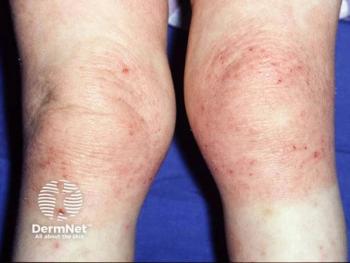
Psychological Impact of Atopic Dermatitis in Pediatric Patients
Elizabeth Swanson, MD, and Joshua Zeichner, MD, discuss the psychological factors impacting pediatric patients’ atopic dermatitis.
Episodes in this series

Joshua Zeichner, MD: Let’s change gears and talk about the psychological factors impacting atopic dermatitis. Lisa, I’m going to ask you to take this one.
Elizabeth Swanson, MD: Thank you so much, Josh. Psychological factors play a big role with atopic dermatitis. The biggest one, of course, is stress. When patients are under stress, often their atopic dermatitis gets worse. That can turn into a bit of a vicious cycle because the stress creates a flare of their atopic dermatitis, which stresses them out even more. They go round and round, and their atopic dermatitis flares up. These psychological factors—a lot of which are outside our control, including COVID-19 stressors, school stressors, and family stressors—can drive the disease.
Joshua Zeichner, MD: We see stress as a significant factor in atopic dermatitis and a lot of other conditions in dermatology, whether it’s rosacea, psoriasis, or acne. We can’t underestimate the impact that stress has on the quality of life of the patients who are suffering and their support network: their parents, friends, and teachers. We want to get the disease under control for the whole community.
Transcript Edited for Clarity
Newsletter
Like what you’re reading? Subscribe to Dermatology Times for weekly updates on therapies, innovations, and real-world practice tips.

















